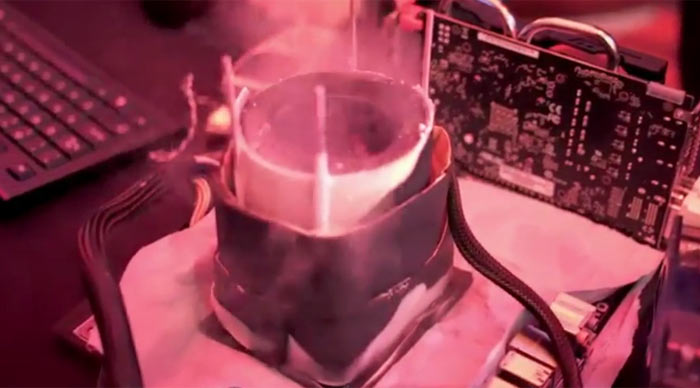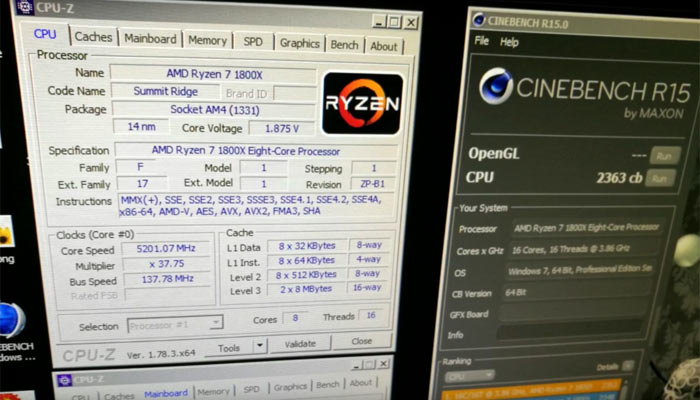AMD's new Ryzen CPUs are breaking records even before they reach general availability. Pro overclockers came to the Ryzen announcement party to see how far they could push the new Ryzen 7 CPUs and the results aren't disappointing - as long as you are happy with world record benchmark scores.
YouTube videos of the feat have been whack-a-moled but luckily I found a Vimeo of the Ryzen OC segment, which I've embedded above.

Lashings of LN2 were ladled on the 1800X
From an earlier screen grab taken by TweakTown, below, you can see the OC team had their Ryzen 7 1800X system running at 5.2GHz with all 8 cores active. That same screenshot shows a score of 2363 in Cinebench, which must be from earlier in the event. If you watch through the video you are briefly shown the moment when the AMD drafted overclocking team break world records in Cinebench, with a score of 2449cb. The record broken was a score of 2410cb.

As usual, to push clocks to the limit, the OC team used LN2 cooling and rather high voltages. The CPU-Z screenshot shows a core voltage of 1.875V was applied to achieve a 5.2GHz clock. I wonder how fast the Ryzen 7 1800X could have gone if cooled with LHe… This 95W processor's stock speeds are 3.6GHz to 4GHz but sometimes faster thanks to AMD's XFR technology.
Ryzen die shot from Dr Lisa Su's slide deck, click to zoom.















